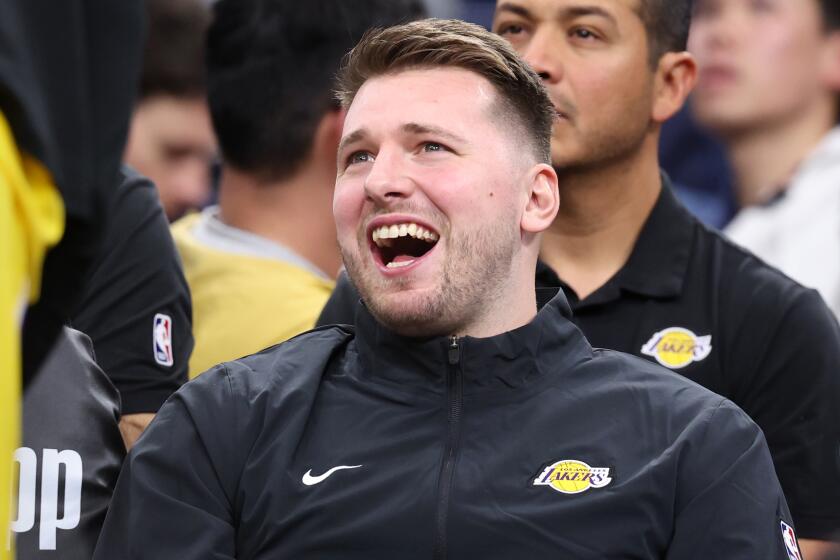Pro Football / Bob Oates : NFL Is Moving--in 3 Directions
- Share via
The National Football League needs three improvements, many critics said last year:
--Games should be shorter.
--The officials should use instant replays.
--The players should be allowed to communicate with one another by radio when the noise of the crowd interferes with the teams, as in domed stadiums.
Is the league on the same page with its critics this year? There is some evidence that it is:
--Launching an attack on long games last week, the NFL played most of them in less than three hours.
--Next, it will experiment with instant replay in the Raider-Redskin game at the Coliseum Sunday and in seven other exhibitions, including Denver at San Francisco, the first Monday night game of the year.
--Finally, the NFL has scheduled three helmet-radio study games this month.
Instant replays will not be used during the 1985 regular season, NFL Commissioner Pete Rozelle said. But if this month’s exhibition experiments are successful, they will begin in 1986.
“I’m not sure it’s feasible,” said Gil Brandt, Dallas Cowboy vice president. “When you sit down the day after a game and look at the movies, you can never be sure of the call on a close play. You have to see it from many angles to be dead sure. And the only time there are that many (TV) cameras in operation is during the playoffs and the Super Bowl. I’d hate to reverse any call based on the (fewer) cameras television uses at a typical regular-season game.”
The United States Football League reversed its referees many times this spring when it beat the NFL to the punch on the instant replay.
Said USFL spokesman Bob Rose: “I think we proved it can be done. The key is to stay with the referee’s original decision unless you’re 100% sure they’re wrong.”
As pioneered by the USFL, the instant replay apparatus was only used when a coach challenged an official’s call.
“We won’t use a challenge system,” Rozelle said.
Instead, at Sunday’s Raider-Redskin game, an eighth game official--known as the replay official--will take charge at an NBC television monitor in the Coliseum press box. Any time he sees a possible judgment error on a possession-type play, such as a fumble, he will signal the referee to call a timeout.
If the replay confirms the mistake, the call will be reversed.
To trigger the review mechanism, the replay must appear on the commercial television screen within 20 seconds. The NFL hopes thereby not to lengthen a game unduly.
Minus replay delays, most of last week’s exhibitions moved rather briskly. The effort to speed up from last year’s NFL average, 3:14, was successful.
Denver completed its game with the New York Giants in 2:56. The Pittsburgh-Tampa Bay game, though high-scoring (42-27), lasted only 2:58. The New York Jets and Philadelphia scored a combined 54 points and still finished in 2:59. The Ram-Houston game was played in 3:06.
Only the Raiders and 49ers (3:27 at the Coliseum) missed the deadline.
“We threw 79 passes and completed 39,” said Al LoCasale, Raider general manager. “That means the clock stopped 40 times. We had 16 (accepted) penalties and others that weren’t accepted. There were seven turnovers. We had a five-minute injury delay. And the halftime fireworks took us a couple of minutes over.”
The NFL may have to do something about dropped passes and fireworks. A 3:27 game won’t fit in a three-hour television time frame--which is a goal of the project.
As for radio helmets, Rozelle said eight men on each side--the first- and second-string quarterbacks with transmitters and six other players with radio receivers--will wear them later this month during the summer’s other electronic experiment.
The radio study games are Cincinnati at Detroit Aug. 23, San Francisco at Seattle Aug. 30 and Houston at Dallas Aug. 31.
More to Read
Go beyond the scoreboard
Get the latest on L.A.'s teams in the daily Sports Report newsletter.
You may occasionally receive promotional content from the Los Angeles Times.










